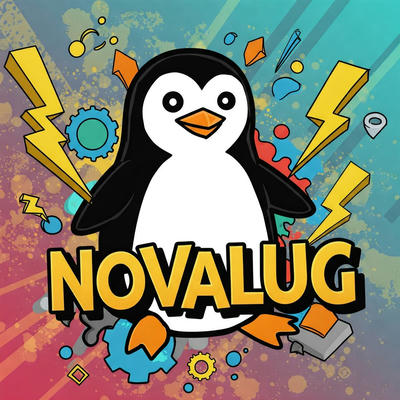
We are a curious, informal, and friendly mix of IT professionals, hobbyists, students, and others with an interest in Linux, Free and Open Source software, and open knowledge. The Northern Virginia Linux Users Group (NoVaLUG) is the oldest LUG in the Northern VA area and likely in the whole of US, established in 1993.
Meetings
NoVaLUG holds monthly, in-person meetings. Information about meetings and locations can be found here.
General Announcements
Our publicly visible announcements can be viewed on our Fediverse (aka mastodon) account without the need to log in to any services.
Join and Participate
We have many places to hang-out online.